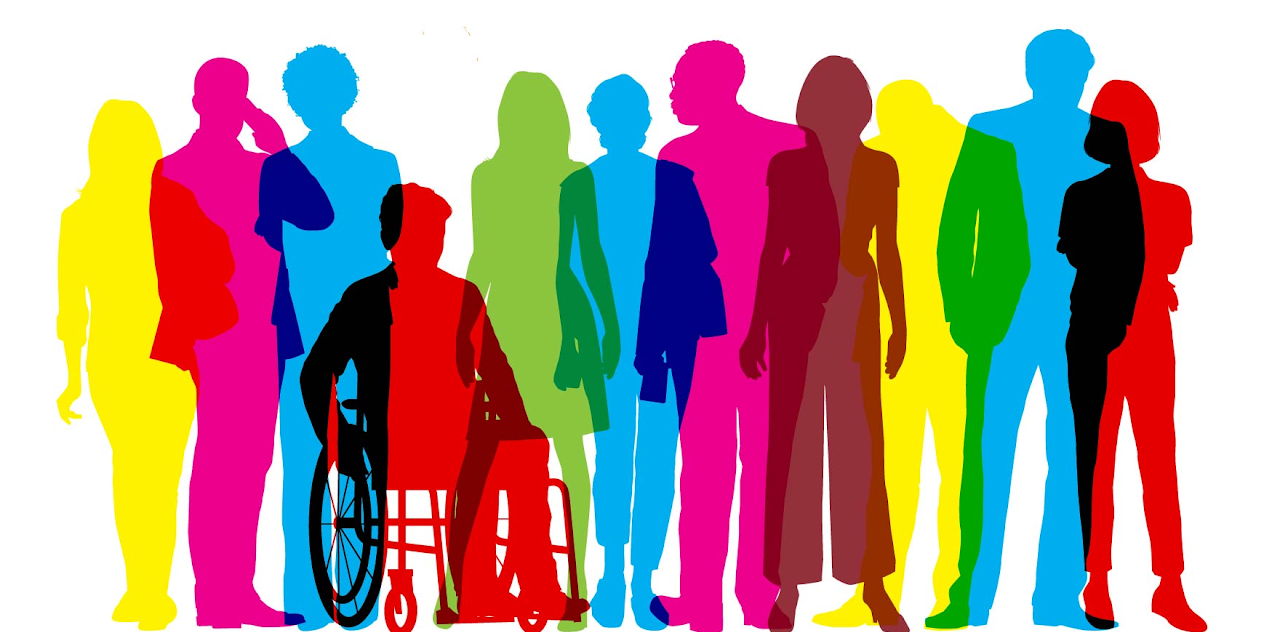One can never relax in a clinical setting. This is true no matter how intimate, or home-y, or perfectly facsimiled your hospital suite is to your bedroom. The closest to relaxation one gets is of the clinically-induced variety. The kind that one attains from slipping over the cliff edge into the ravines of anesthetic sleep. I lived in a hospital for a several-month-long stint in seventh grade. Nearly a quarter of a year was spent eating, sleeping, and bathing in a clinical setting. No relaxation accompanied my aesculapian holiday.
What did accompany my stay, however, was a nascent love for the chronically ill. Not empathy (I already had that). And certainly no sympathy. But a genuine love for this community of fighters and daredevils.
When people think of courage and heroism, scenes of war-torn battlefields or leveled cities populate the mind. But indeed, one need not look farther than their neighbor or themselves. The disability community is a poster child of an extraordinary courage and heroism that is spectacularly ordinary. At some level, to live a life with a disability is to have an ability like no other; it is to be superhuman. It requires one to live a life like everyone else, with deep sorrows and huge elations, on top of a consuming illness or supposed impairment. And yet, millions do this every day and all night. It is an existence that is even more inspirational because it is done simply to be done, divorced from spotlight or praise. This was a lesson I first learned from my hospital-mates.
While I have been hospitalized many dozens of times, that seventh grade spring is distinguished for being my longest stretch to date. It was, at that point, the culmination of a several-year-long search for answers. Concrete answers were still a few years off. But whereas I entered the hospital an unwell able-bodied person, I departed a newly baptized disabled person. My paradigm shifted. I was no longer in the cure-finding business but instead hard at work figuring out how to live a fulfilled life under altered circumstances. For those who have never made this transition: it is a forceful, sometimes internally violent, act of re-definition.
For some in my life, including those most close to me, it was an unacceptable reconstitution. However, for me it was liberating. For years my life had been a trek through the marsh of medical mystery. Some physicians and experts—so-called—were on the cusp of giving up on my case altogether. Their inability and ignorance paralyzed them to conclude impossibility. After my long hospitalization, though, in choosing to redefine myself, I bid farewell to never-ending insecurity and exasperation and instead began asking, what’s next?
Many that I have spoken to have recounted comparable metamorphoses.
Despite diagnoses that were ultimately discovered and life moving on, I fell short of a fully actualized disabled person until college. As a chronically ill young person, peers did not, and do not, abound. My months-long clinical abode had served as the closest approximation to disability community and camaraderie I had ever known. And I relished it. I left my long stay without a diagnosis but in many ways, I left validated and confident. My fellow hospital guests had donned me with an experiential validation that nowhere else could have provided. And though I would go nearly six years without again feeling that sense of belonging, college—and the community I found there—refortified me.
My reading of disability affairs is that in decades and centuries to come, it will rank among those social and political issues generations hence will be at a loss to understand. How could our sensibilities have been so feeble, our attitudes so ill-informed? It will appear alongside injust systems of justice, factory farming, and our planetary health. Citizens of today will be judged by citizens of tomorrow. You will be remembered for how you treated people different from yourself.
To move forward in the most healthy and comprehensive way possible, everyone must come to do what I did several years ago. Our societies must come to love people with disabilities. For me, it was a personal necessity. It doesn’t have to be for everyone; it cannot be that for everyone. But to love a person—or a people—one must be able to see a part of oneself in them. At present, we do not have the cultural infrastructure, or maturity, for that level of connection and celebration. People with disabilities continue to be maligned, regarded as a burden that society carries out of the goodness of its heart, and treated as second class citizens. We are told that we are not worth the effort. No doubt this speaks to society’s atrophied capacity to recognize the humanity in others. Nothing short of humanizing disability and cultivating a love for the disabled is the task that lies in front of us.
Robust disability advocacy has won legal victories. But reaching people’s hearts and minds remains a frontier. If we continue to struggle—both for ourselves and against structures that bind us—and if we continue to speak out, reach out, and educate, that frontier will recede.

